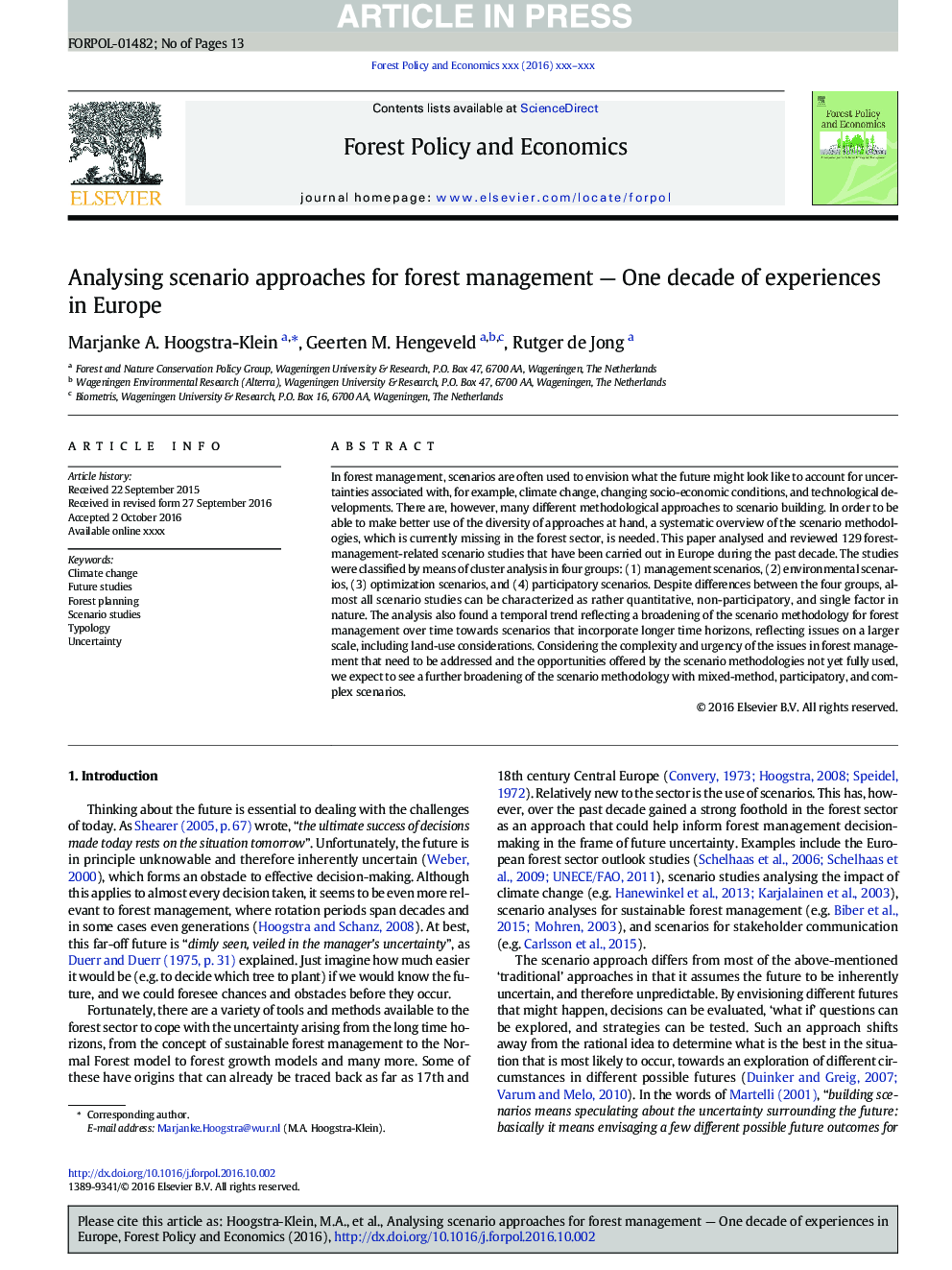| Article ID | Journal | Published Year | Pages | File Type |
|---|---|---|---|---|
| 6544841 | Forest Policy and Economics | 2017 | 13 Pages |
Abstract
In forest management, scenarios are often used to envision what the future might look like to account for uncertainties associated with, for example, climate change, changing socio-economic conditions, and technological developments. There are, however, many different methodological approaches to scenario building. In order to be able to make better use of the diversity of approaches at hand, a systematic overview of the scenario methodologies, which is currently missing in the forest sector, is needed. This paper analysed and reviewed 129 forest-management-related scenario studies that have been carried out in Europe during the past decade. The studies were classified by means of cluster analysis in four groups: (1) management scenarios, (2) environmental scenarios, (3) optimization scenarios, and (4) participatory scenarios. Despite differences between the four groups, almost all scenario studies can be characterized as rather quantitative, non-participatory, and single factor in nature. The analysis also found a temporal trend reflecting a broadening of the scenario methodology for forest management over time towards scenarios that incorporate longer time horizons, reflecting issues on a larger scale, including land-use considerations. Considering the complexity and urgency of the issues in forest management that need to be addressed and the opportunities offered by the scenario methodologies not yet fully used, we expect to see a further broadening of the scenario methodology with mixed-method, participatory, and complex scenarios.
Related Topics
Life Sciences
Agricultural and Biological Sciences
Forestry
Authors
Marjanke A. Hoogstra-Klein, Geerten M. Hengeveld, Rutger de Jong,
